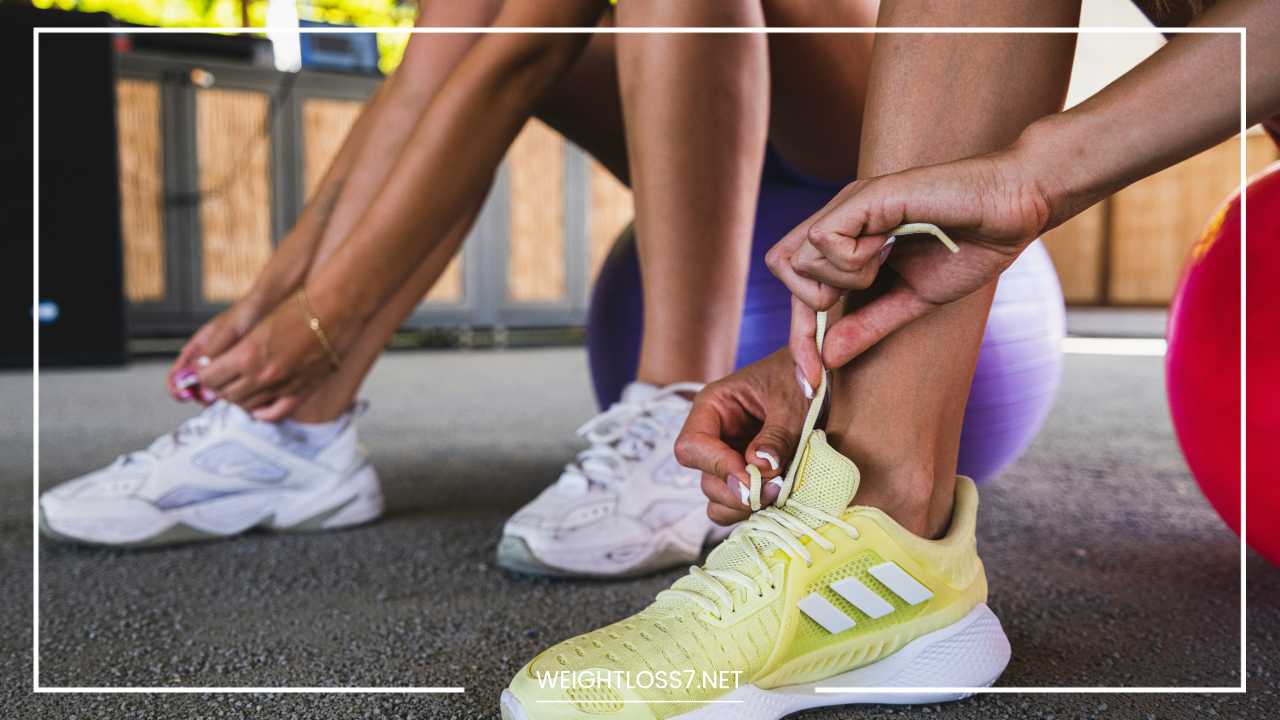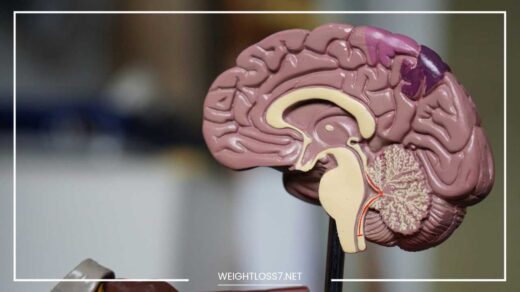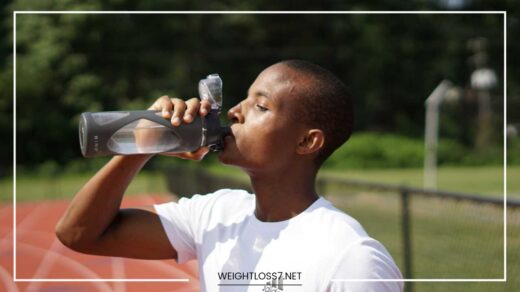Fastest Way to Lose Weight

Lose Weight
Shedding Pounds Safely: A Guide to Sustainable Weight Loss Over Fad Diets
The allure of a quick fix is undeniable, especially when it comes to weight loss. Social media bombards us with before-and-after pictures and promises of dropping pounds in record time. But the truth is, the “fastest way to lose weight” is often a recipe for disappointment and, worse, potential health risks.
Crash diets and extreme exercise routines might seem like shortcuts, but they often backfire, leaving you feeling deprived, frustrated, and with a yo-yo effect on the scale.
This blog post isn’t about promoting the latest fad diet. We’re here to ditch the quick fixes and focus on building sustainable habits that contribute to lasting weight loss.
We’ll explore scientifically-backed strategies to help you reach your goals and transform your relationship with food and exercise. Here’s why sustainable weight loss is the key to a healthier, happier you.
Why Sustainable Weight Loss Wins Every Time
Rapid weight loss might sound appealing, but it often comes at a hidden cost. Crash diets can lead to a cascade of problems, including:
- Nutrient Deficiencies: When you severely restrict calories, you risk not getting the vitamins and minerals your body needs to function properly. This can lead to fatigue, weakened immunity, and even hair loss.
- Muscle Loss: Along with fat, crash diets can cause you to lose muscle mass, which is essential for metabolism and overall health. Muscle burns more calories at rest, so losing it can actually hinder your weight loss efforts in the long run.
- Yo-Yo Dieting: The unsustainable nature of crash diets often leads to regaining the weight, and sometimes even more. This cycle of weight loss and regain can be incredibly frustrating and can take a toll on your metabolism.
Sustainable weight loss, on the other hand, prioritizes healthy habits you can maintain for life. This can lead to a multitude of benefits:
- Improved Overall Health: Eating a balanced diet and exercising regularly reduces the risk of chronic diseases like heart disease, type 2 diabetes, and some cancers.
- Increased Energy Levels: When you fuel your body with the right nutrients, you’ll have more energy to tackle your day and feel good doing it.
- Boosted Self-Esteem: Reaching weight loss goals in a healthy way can significantly improve your confidence and relationship with your body. You’ll feel empowered and proud of the progress you’ve made.
Building the Pillars of Sustainable Weight Loss:
Now that we’ve established the importance of sustainable weight loss, let’s delve into the key strategies to achieve it:
- Fuel Your Body with Nutritious Foods:
- Embrace Whole, Unprocessed Foods: Fill your plate with a rainbow of fruits and vegetables, whole grains like brown rice and quinoa, lean protein sources like chicken, fish, and legumes, and healthy fats like those found in avocados, nuts, and olive oil. These foods provide essential nutrients, keep you feeling fuller for longer, and regulate your blood sugar levels.
- Limit Processed Foods: Processed foods are often loaded with calories, unhealthy fats, added sugars, and sodium. These can contribute to weight gain, inflammation, and other health problems. While an occasional processed treat won’t derail your progress, focus on making whole foods the foundation of your diet.
- Don’t Fear Healthy Fats: Contrary to popular belief, healthy fats are essential for a balanced diet. They promote satiety, support nutrient absorption, and play a role in hormone regulation. Include healthy fats in every meal and snack.
- Stay Hydrated: Water keeps you hydrated, flushes toxins, and can even help you feel less hungry. Aim for eight glasses of water per day, but adjust this based on your activity level and climate. Herbal teas and unsweetened coffee can also contribute to your daily fluid intake.
- Move Your Body and Make it a Habit:
- Find Activities You Enjoy: Exercise shouldn’t feel like a chore. Explore different activities like dancing, swimming, hiking, team sports, rock climbing, or even gardening. Finding something you genuinely enjoy makes it easier to stick with in the long run.
- Start Slow and Gradually Increase Intensity: Don’t try to go from couch potato to marathon runner overnight. Begin with moderate exercise for 30 minutes most days of the week. As you get fitter, gradually increase the duration or intensity of your workouts. Consistency is key!
- Strength Training is Your Ally: Building muscle mass helps boost your metabolism, even at rest. Include strength-training exercises that target different muscle groups at least twice a week. Bodyweight exercises, free weights, or resistance bands are all great options.
- Mindful Eating Practices for a Sustainable Approach:
- Eat Slowly and Savor Your Food: Put down your phone, turn off the TV, and focus on the experience of eating. This allows you to appreciate the flavors and textures of your food, which can help with portion control and prevent overeating.
- Practice Mindful Snacking: Don’t mindlessly munch on unhealthy snacks throughout the day. Choose nutritious snacks like fruits with nut butter, veggie sticks with hummus, or a handful of mixed nuts. Pay attention to your hunger cues and eat slowly, savoring each bite.
- Listen to Your Body’s Hunger Cues: Don’t force yourself to finish everything on your plate. Eat until you’re comfortably satisfied, not stuffed. Tuning into your body’s natural hunger and fullness cues is an important skill for sustainable weight loss.
- Prioritize Quality Sleep for a Sustainable Approach:
- Aim for 7-8 Hours of Sleep Per Night: When you’re sleep-deprived, your body produces more ghrelin, the hunger hormone, and less leptin, the satiety hormone. This can lead to increased cravings and overeating. Getting enough quality sleep regulates your hormones and keeps your metabolism functioning optimally.
- Create a Relaxing Bedtime Routine: Establish a consistent sleep schedule and wind down before bed with calming activities like reading, taking a warm bath, or practicing light stretches. Avoid screen time for at least an hour before bed, as the blue light emitted from electronic devices can disrupt your sleep cycle.
Building a Sustainable Weight Loss Mindset
Sustainable weight loss is a journey, not a race. There will be setbacks along the way, but don’t let them discourage you.
View them as learning experiences and recommit to your healthy habits. Celebrate your non-scale victories – increased energy levels, improved mood, stronger muscles – alongside the numbers on the scale.
Here are some additional tips to cultivate a sustainable weight loss mindset:
- Focus on Progress, Not Perfection: There will be days when you overindulge or miss a workout. Don’t beat yourself up. Just get back on track with your next meal or exercise session.
- Find Your Support System: Surround yourself with positive and supportive people who encourage your healthy lifestyle choices. This could be a friend, family member, or even an online support group.
- Make it a Lifestyle Change, Not a Diet: Think of sustainable weight loss as a lifelong commitment to healthy living, not a temporary fix. When you approach it with this mindset, you’re more likely to find joy in the process and maintain your healthy habits for the long term.
Remember, you are not alone on this journey! There are many resources available to help you succeed. Consider consulting a registered dietitian for personalized nutrition advice or a certified personal trainer to create a safe and effective exercise program.
By following these tips and adopting a sustainable weight loss approach, you can achieve your goals, improve your overall health, and feel your best. So ditch the fad diets and quick fixes, and start building a healthy lifestyle that you can enjoy for life!

















